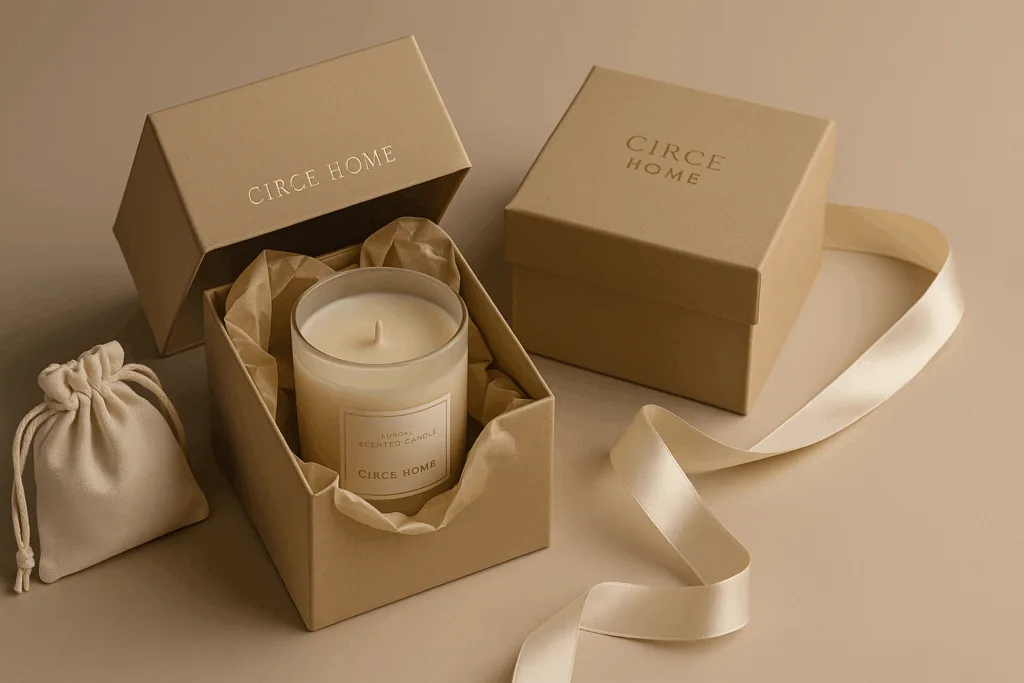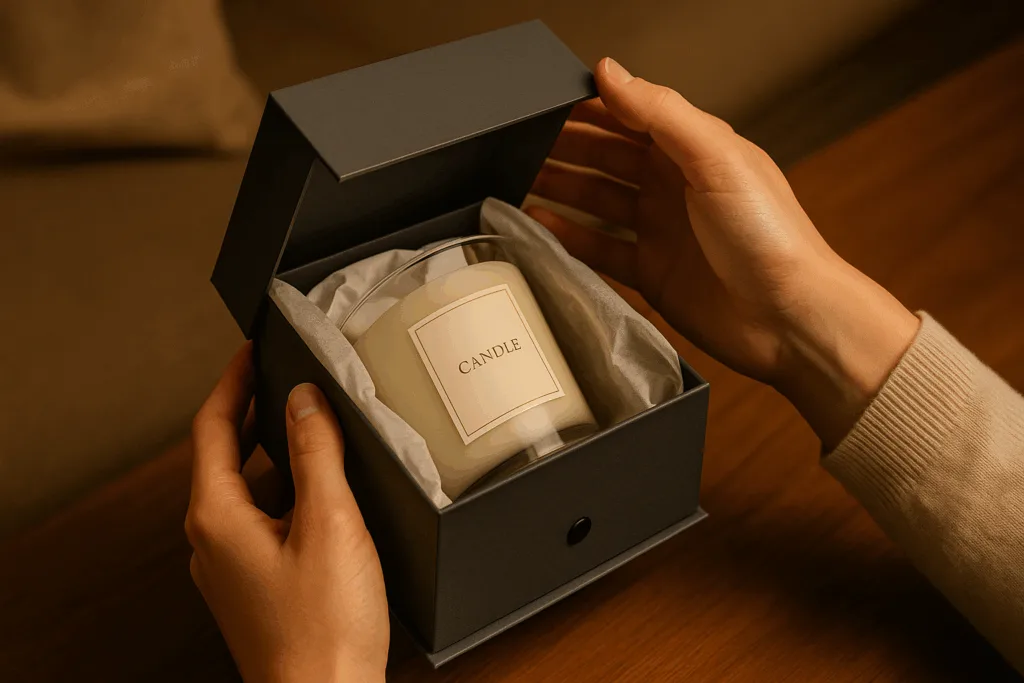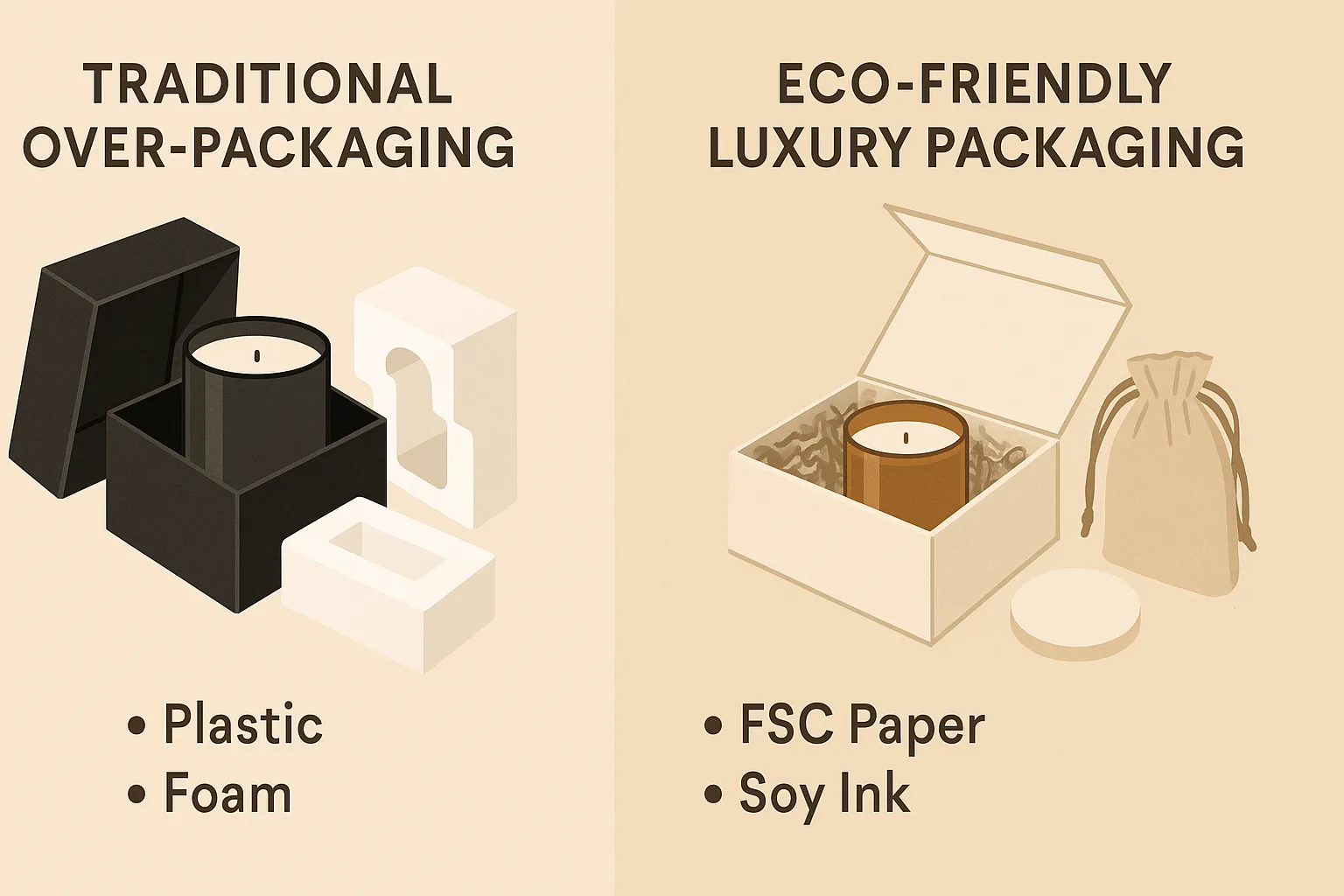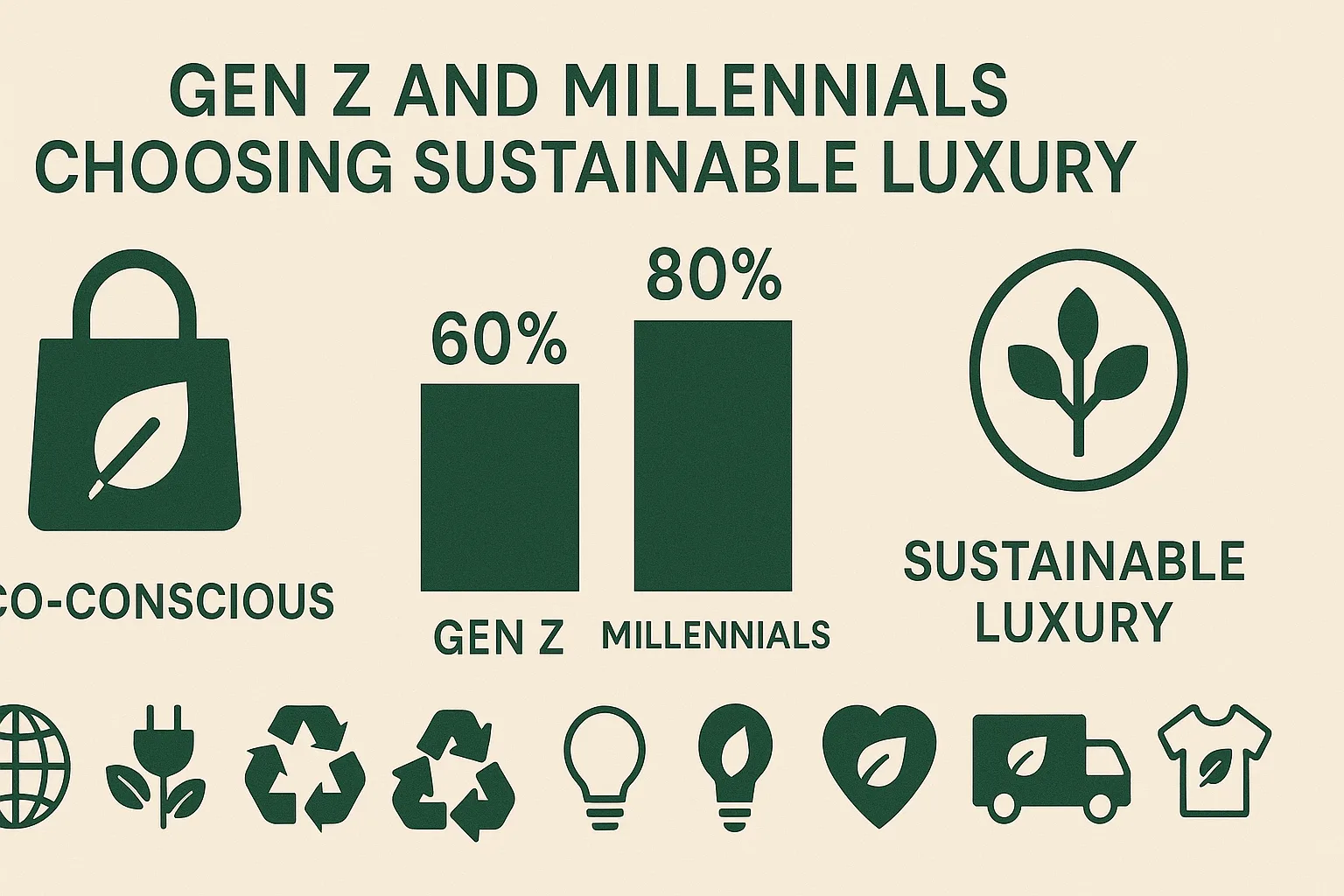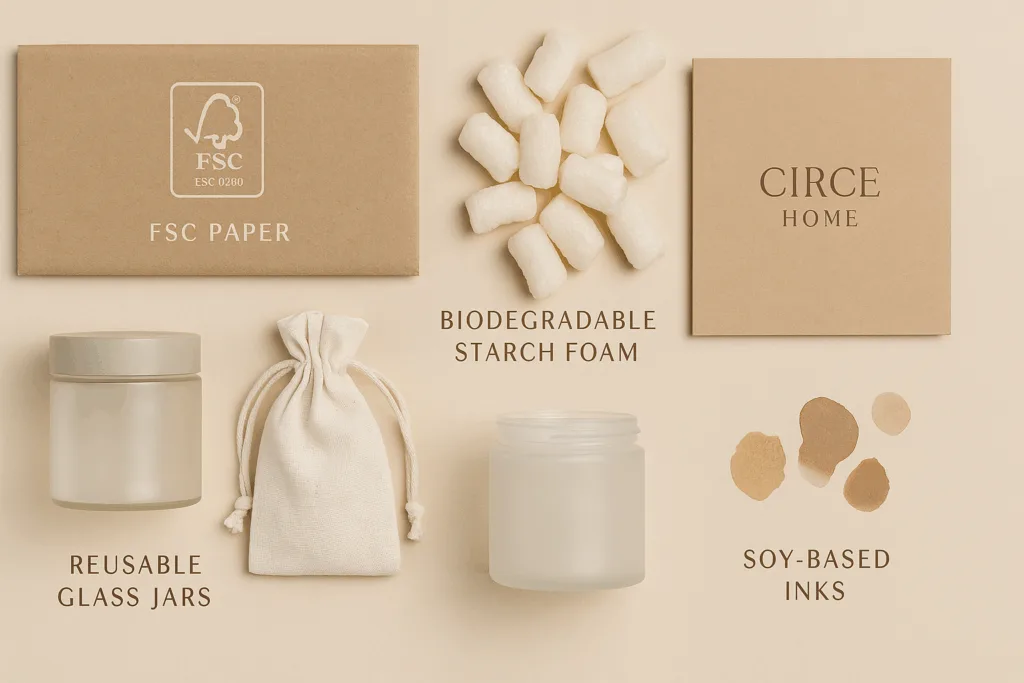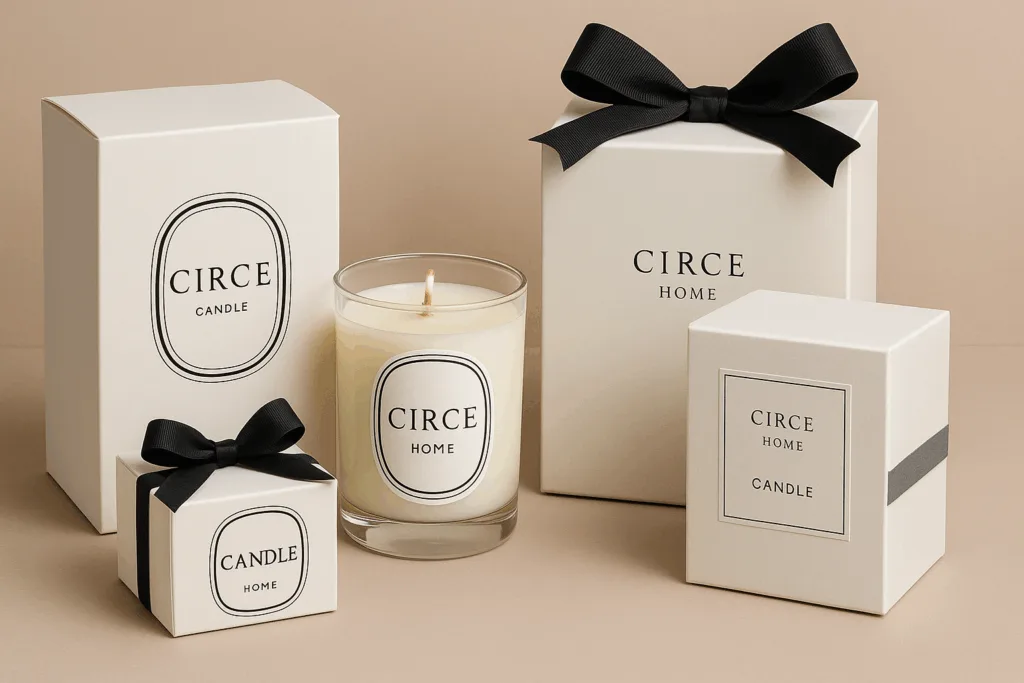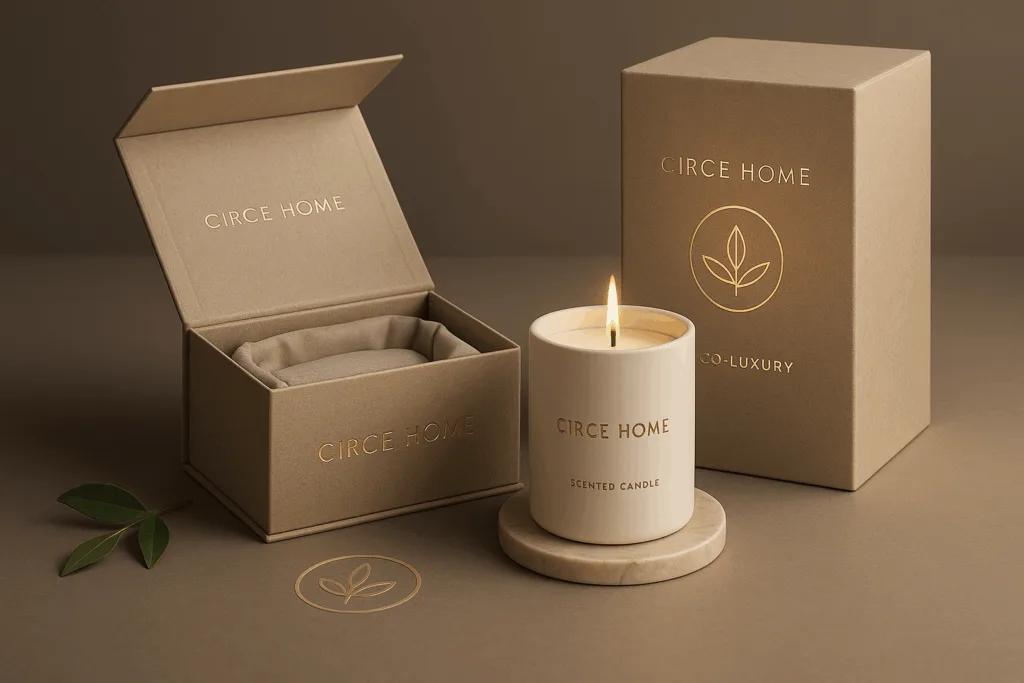The Value of Unboxing: First Impressions That Last
Why Unboxing Matters for Luxury Candle Brands
The unboxing experience has become a marketing tool as powerful as the product itself. When a customer opens a luxury candle, the packaging sets the tone before the fragrance even fills the room. High-end brands know that packaging is more than protection: it is storytelling, identity, and emotional connection. On social media, particularly Instagram, TikTok, and YouTube, unboxing videos are a cultural trend. Consumers film and share their first moments with luxury products, amplifying the brand’s reach and reputation.
Luxury candle packaging must therefore balance form and function. From embossed textures to elegant ribbons, every detail shapes the narrative of sophistication. Yet, in today’s market, consumers demand more than just beauty—they want responsibility. This shift challenges brands to rethink how to design packaging that feels luxurious while remaining mindful of environmental impact.
The Role of Ritual and Sustainability in Modern Packaging
Unboxing a luxury candle is often a ritual: peeling back tissue paper, opening magnetic closures, and unveiling a beautifully designed jar. The sensory journey enhances perceived value and deepens brand loyalty. But with ritual comes responsibility. Wasteful packaging—layers of plastic, foam, or non-recyclable glitter—creates a moral conflict for eco-conscious buyers.
Modern luxury must recognize that ritual does not equal excess. The challenge is to deliver an indulgent experience without guilt. This is where sustainability transforms from a cost factor into a brand advantage. By combining recyclable, reusable, and biodegradable elements with refined aesthetics, candle makers can meet the dual desires of luxury and ethics.
Where Luxury Meets Sustainability
The Luxury Dimension: Textures, Details, and Craftsmanship
Luxury packaging communicates prestige through its tactile and visual qualities. Elements like silk linings, magnetic closures, gold foiling, and textured papers create an aura of exclusivity. When customers touch and see these details, they perceive value beyond the candle itself. Craftsmanship—the way a box opens smoothly, the way colors harmonize—matters as much as the fragrance.
Luxury design is about elevating the ordinary into something memorable. A candle in a simple jar can feel extraordinary when presented in packaging that feels like a gift in itself. Yet, this visual and tactile richness must evolve alongside sustainability. Extravagance without responsibility is no longer acceptable to the modern luxury buyer.
The Sustainability Dimension: Materials and Certifications
Sustainability is not only about reducing waste; it is also about trust. Materials like FSC-certified paper, soy-based inks, biodegradable fillers, and reusable glass jars show consumers that brands care about both product and planet. Eco-friendly packaging is no longer niche; it is a demand.
A balance emerges: textured recycled paper instead of virgin paper, biodegradable ribbons instead of plastic ties, and soy ink instead of petroleum-based ink. Each choice contributes to a narrative of mindful luxury. Certifications such as FSC (Forest Stewardship Council) and Cradle-to-Cradle validate these efforts, reassuring eco-aware consumers that luxury can align with responsibility.
Consumer Psychology and Market Trends
Dual Demands: Aesthetic Luxury + Environmental Responsibility
High-end buyers today seek more than beauty—they want integrity. Candle packaging must reflect values as much as style. Consumers expect brands to showcase sustainability not as an afterthought but as an essential part of the luxury experience. They are willing to pay more for products that harmonize elegance with ethics.
Global Shifts: Green Luxury in Gen Z and Millennials
Younger generations are driving the rise of sustainable luxury. Gen Z and Millennials are not just consumers—they are activists with purchasing power. Studies show that these groups prioritize eco-responsibility when choosing luxury items. They want to enjoy indulgence without guilt, pushing brands toward greener practices.
Traditional Over-Packaging vs. Minimalist Eco-Packaging
In the past, luxury often meant excess—layers of paper, plastic wraps, and oversized boxes. Today, that image feels outdated. Minimalist packaging, where every material serves a purpose, now signals refinement and environmental awareness. Eco-packaging proves that restraint can still deliver luxury.
| Traditional Packaging | Sustainable Packaging |
| Multiple non-recyclable layers | Recyclable, compostable, or reusable materials |
| Heavy use of plastics | Plant-based alternatives |
| Waste-focused luxury | Minimalist, purpose-driven luxury |
Designing the Future: How Brands Build Sustainable Luxury Unboxing
Materials Innovation: From Starch Foam to Plant-Based Ink
Brands are embracing innovative materials that maintain elegance while reducing environmental harm. Starch-based biodegradable foam can replace plastic fillers, while vegetable inks reduce chemical waste. These innovations provide the tactile richness luxury demands without compromising ecological values.
Modular & Reusable Designs: Reducing Waste Through Creativity
Modular packaging allows brands to design boxes with multiple uses. Candle boxes that transform into storage containers, decorative trays, or keepsake organizers extend the life cycle of packaging. Such designs reinforce the idea that packaging should never be waste but part of the product’s value.
The Experiential Layer: Minimalist Yet Elegant Unboxing
Sustainability does not mean sacrificing experience. A box with clean lines, subtle embossing, and recyclable satin ribbons can deliver sophistication while keeping materials eco-friendly. The goal is to strip away waste without stripping away joy. When executed well, minimalist packaging amplifies elegance.
Inspiration from Leading Brands
Case Studies: Diptyque, Jo Malone, and Beyond
Luxury brands such as Diptyque and Jo Malone lead by example. Diptyque incorporates recycled paper and sustainable inks, while Jo Malone opts for understated, recyclable boxes with ribbon accents. These designs balance refinement with environmental awareness, showing that luxury can adapt to modern values.
Innovative Packaging Concepts: Candle as Container
Some brands push creativity further by designing candle jars that double as packaging. By making the container itself part of the experience, waste is minimized and functionality is maximized. Refillable jars, ceramic vessels, and multi-use glass containers embody the philosophy that packaging should be purposeful.
Business Value and Brand Differentiation
Sustainable Luxury as Market Advantage
Eco-luxury packaging is not just a responsibility; it is a differentiator. Brands that embrace sustainability position themselves as forward-thinking leaders. They appeal to eco-conscious consumers while standing apart from competitors who still rely on outdated, excessive packaging.
ESG and Investment: Why Green Packaging Builds Trust
Investors increasingly evaluate companies based on ESG (Environmental, Social, Governance) performance. Sustainable packaging practices signal that a brand is aligned with global goals, making it more attractive for partnerships and investments. The alignment between profit and purpose ensures long-term growth.
The Future of Luxury Candle Packaging
The Vision: Aesthetic, Environmental, and Emotional Integration
The future of luxury candle packaging lies in merging aesthetics with environmental responsibility. Packaging should be beautiful, functional, and guilt-free. Customers want the thrill of unboxing without the burden of waste, creating a new definition of indulgence.
Defining True Luxury: Respecting Consumers and the Planet
True luxury respects both the individual and the collective. It respects the consumer’s desire for elegance and the planet’s need for sustainability. As more brands adopt this mindset, sustainable packaging will become the new standard, not the exception.
FAQs: Unboxing Experience & Sustainable Candle Packaging
Q1: How long does a luxury candle typically last when paired with sustainable packaging?
A luxury candle’s burn time depends on its size and wax type, but sustainable packaging does not affect performance. It ensures the candle arrives safely and aligns with eco-values.
Q2: What is the difference between essential oils in candles and synthetic fragrances?
Essential oils are natural extracts, while synthetic fragrances are lab-created. Both can be safe when properly tested, but many luxury brands prefer essential oils for authenticity.
Q3: How can I choose the right fragrance profile for my home?
Consider your lifestyle and preferences. Fresh citrus suits kitchens, calming lavender fits bedrooms, and warm vanilla works well in living rooms.
Q4: Are eco-friendly luxury candle packages as durable as traditional ones?
Yes. Modern sustainable materials are engineered for strength. Recycled paper, biodegradable foam, and glass containers offer the same durability with less environmental harm.
Q5: Can luxury candle packaging be customized for gifts?
Absolutely. Brands offer eco-conscious customizations, from embossed recycled paper to reusable gift boxes, making sustainable luxury perfect for gifting.
Q6: How do I recycle or reuse my candle packaging?
Most packaging can be recycled via standard programs. Boxes can be reused as organizers, and jars can be repurposed for storage or décor.
Conclusion
The unboxing experience has evolved from extravagance to mindful luxury. By combining eco-friendly materials with refined aesthetics, candle brands deliver indulgence without guilt. The future of luxury is sustainable, proving that elegance and responsibility can coexist beautifully.

